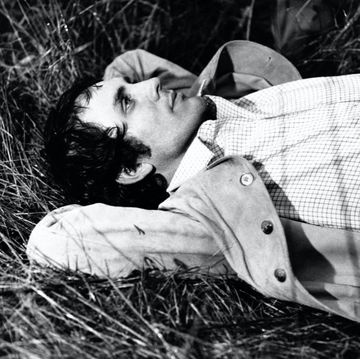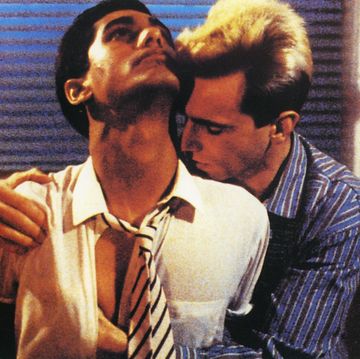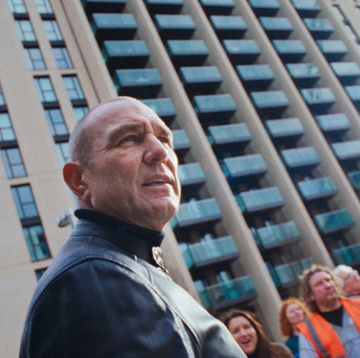It wasn't one sole moment that saw Call Me By Your Name's induction to the queer canon. There was the dream-like setting of the north Italian countryside. There was a novel way to enjoy peaches. There was a queer love story, of course. But there was, most strikingly, a tender touch from director Luca Guadagnino that made for a fearless and ethereal celebration of real love – and one that found acceptance at home.
At the film’s end, Timothée Chalamet’s Elio is left heartbroken at the departure of Oliver, Armie Hammer, his summer love, and the assistant to his own academic father, Professor Pearlman. The affair is kept secret. But Elio, upon a listless return from one last trip, discovers that his father is aware that this is more than just friendship. In a regular Hollywood film, this is where the tension might build; LGBTQ+ focused films like Boy Erased and The Miseducation of Cameron Post depict parents actively working against their children’s identities. Even relatively positive films like Pride or Love, Simon includes scenes in which a parent struggles or refuses to understand who their child is. But from Elio’s father, there’s nothing but support. “You’re too smart not to know how rare, how special, what you two had was,” he says, before telling his son to learn from this pain, rather than shut it away. It’s a moment of honesty and understanding in a love story that is difficult, and complex, and heartbreaking.
Parents are often the first port of call in times of trouble. They are our first counsel, using their experience to make sense of the things that are happening to us, all delivered with a familiarity inextricably linked to our understanding of ‘home’. Or that’s the ideal. For many queer people, this guidance is absent. In the worst of these, it is a rejection. Lives can be torn apart by parents who can’t, or won’t, accept the natural state of their child.
In Call Me By Your Name, Elio’s forlorn conclusion is, ironically, a happy ending for so many others. Here, Elio’s father gives him the pep talk so many of us needed. “In my place, most parents would hope the whole thing goes away, or pray that their sons land on their feet,” he says. “But I am not such a parent. We rip out so much of ourselves to be cured of things faster that we go bankrupt by the age of 30 and have less to offer each time we start with someone new. But to make yourself feel nothing so as not to feel anything? What a waste.”
Herein lies the film’s most important lesson, and one delivered from the person Elio needs the most. It is a father telling a son that his pain is the price he pays for falling in love, but to embrace it nonetheless. Not only does he accept Elio, he encourages him to live authentically, and to avoid any bitterness that comes with young heartbreak. Whoever we love, we want to know that what we felt was real, and that it mattered, even if it didn’t work out. In this monologue, a father assures his son that “when you least expect it, nature has cunning ways of finding our weakest spot. Just remember: I’m here.”













